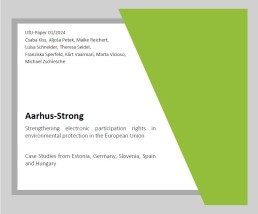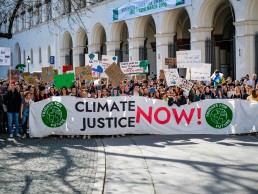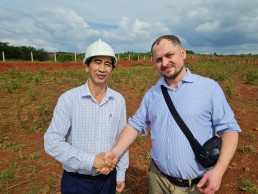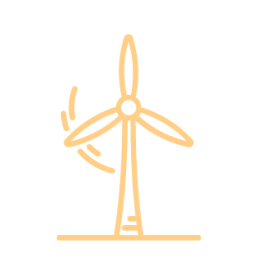What is participation?
Environmental and climate protection are complex tasks for society as a whole that require the interaction of various stakeholders. The aim of participation and involvement is to take into account the different perspectives, needs and interests of as many people as possible and to arrive at viable solutions together in a negotiation process. International agreements such as the Aarhus Convention or the Escazú Convention form the legal basis for this and define minimum standards for access to environmental information, transparency and public participation in environmentally relevant decisions as well as access to justice. Participation processes are beneficial for the participants and those conducting them if the results are relevant for the subsequent decision-making process, if participation takes place at an early stage so that changes to the planning are still possible, and if the participants’ suggestions are taken on board in an appreciative manner.
Forms of participation
On the one hand, we understand participation to mean formal, legally prescribed public involvement. On the other hand, it includes various forms of civil society engagement and diverse informal formats and methods through which citizens, associations and other stakeholders can be given a say in environmentally relevant decisions. These include, for example, round tables, future or consensus conferences, scenario workshops, living labs and citizens’ councils. Participation is also a cornerstone of education for sustainable development (ESD): children and young people have a right to participate and help shape the future. Young people need to experience that participation can be successful and does not remain without consequences.
Our work in the subject area
UfU designs, organizes and moderates the various participatory processes described above and involves citizens of different age groups and stakeholders in the socio-ecological transformation. In addition, UfU draws up studies and recommendations on the design of participatory processes and advises civil society organizations on participation, development and strategic orientation. In the spirit of applied and transformative research, it is important to UfU to take a participatory approach in its scientific work and to describe development paths towards greater sustainability and social and ecological justice in a joint search and learning process with civil society, politics, research and business.
Our series on the Aarhus Convention:
Contact person
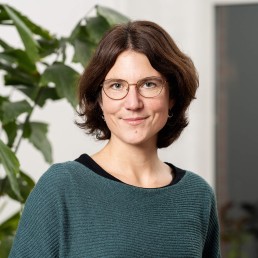
Larissa Donges
Climate protection & transformative education
Dipl. Geoecologist
Head of department
Phone: +4930 4284 993 39
E-Mail: larissa.donges@ufu.de
Current UfU projects in this field:
Dieses Projekt beinhaltet die verständliche Darstellung der neuen Beschleunigungsgesetze und deren Auswirkungen auf die Praxis im Umwelt- und…
Das Forschungsprojekt analysiert, welche Erfolge frühe Öffentlichkeitsbeteiligung hat und misst damit zusammenhängend weitere Effekte.
The research project "Evaluation of public participation - Better planning and approval of environmentally relevant large-scale projects through the…
The Aarhus Convention was adopted in 1998 to strengthen the participation of civil society in the environmental sector. It is the first international…
The research project "Monitoring report on public participation in infrastructure projects" examines public participation in environmentally relevant…



